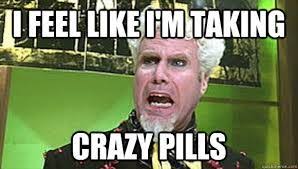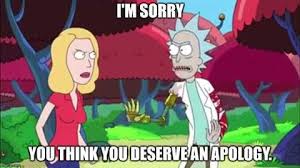You know that language people use that makes you squint and say, Wait, what?—like when something you feel is objectively bad or at least questionable happens, but the way it’s talked about makes it sound like maybe it wasn’t a big deal, or worse, it’s debatable whether it was even bad in the first place? Yeah, I hate that. It’s this subtle way of separating actions from their context, and it happens all the time in media, politics, corporate statements—basically anywhere someone’s trying to avoid looking bad or being held accountable.
Let’s dig into a few examples of how this works, because once you see it, you can’t unsee it.
The Media Loves “Critics Say…”
This one is a classic. You’ve definitely seen headlines like:
- “Critics argue that climate policies could hurt the economy.”
- “Some experts question the ethics of targeted advertising.”
What’s happening here? Well, this phrasing makes it sound like the “critics” are just people with an opinion, as if there’s no real evidence or objective harm to consider. It’s like saying, “Some people don’t like pineapple on pizza.” Sure, they might feel that way, but is it a meaningful critique?
Here’s the problem: When the media frames things this way, it creates this illusion of neutrality—like the action itself (wrecking the planet, exploiting your data, whatever) isn’t objectively bad. It makes harm look like it’s up for debate. Which makes you feel like, well:

Corporate Speak: The Art of Saying Nothing
Corporations are so good at this. Here’s a classic:
- “We acknowledge concerns about the impact of our supply chain practices on local communities.”
Okay, but what does that actually mean? Nothing. It means nothing. They’re not admitting to exploiting workers or harming the environment; they’re just saying they’ve “acknowledged” that someone is unhappy. Good for you, I guess? Meanwhile, the real story—unsafe factories, child labor, deforestation—gets buried under this vague, sanitized language.
Or how about this one:
- “We regret any inconvenience caused by the recent data breach.”
“Inconvenience”? Oh, you mean the massive violation of trust, the financial chaos, and the identity theft? Yeah, super inconvenient. This kind of language shrinks serious issues down to something minor, as if it’s no big deal. It’s like saying, “Sorry you feel that way” instead of actually apologizing.

Politics: A Masterclass in Vagueness
If there’s one place where separating action from context is an art form, it’s politics. Ever heard something like:
- “Lawmakers are divided on new voting restrictions.”
This sounds so neutral, right? Oh, just a healthy debate among professionals. But let’s be honest—those “restrictions” are about disenfranchising voters, mostly Black and brown communities. Framing it as a debate hides the harm and pretends there’s some moral equivalence between suppressing votes and expanding access to democracy.
Or this gem:
- “Some argue that military action is necessary to maintain stability in the region.”
“Some argue”? Really? Who? Oh, right—people with financial and political stakes in war. What’s missing here is the human cost: the civilian casualties, the destruction, the chaos that always follows. It’s not just a “some people say” situation; it’s a deliberate choice with real consequences, and the language erases that.
This is close to what brought up this point for me – we have a drone factory looking to open near Columbus and all of the stories are talking about the number of jobs that will be provided and just the PR facts on the scale and everything – a little bit into the fact that it’s a Peter Thiel connected company (with nothing I saw going into his influence network) and nothing about if creating something like this is in the social interest. Whatever may have started the trend (and, I’m too dumb and/or ADHD to really follow those Chomsky books and pay attention), it may not have started off with malicious intent, but that’s how it’s working.
Why This Matters
This isn’t just about nitpicking language—it’s about how we understand the world. When people in power use these tricks to separate actions from their context, it:
- Dilutes accountability: If no one’s clearly at fault, no one has to take responsibility.
- Hides harm: Soft, neutral language makes serious problems seem minor or non-urgent.
- Protects systems of power: If the real story stays buried, we don’t get mad enough to demand change.
The point is, when you see this kind of language, dig deeper. Ask yourself: Who benefits from making this sound less bad than it really is? Who’s being shielded? What’s the context they’re trying to leave out?
Once you start noticing it, you can’t stop. And that’s a good thing—because calling it out is how we start holding people accountable. Let’s not allow vague, sanitized language be the thing that keeps harmful systems running smoothly.